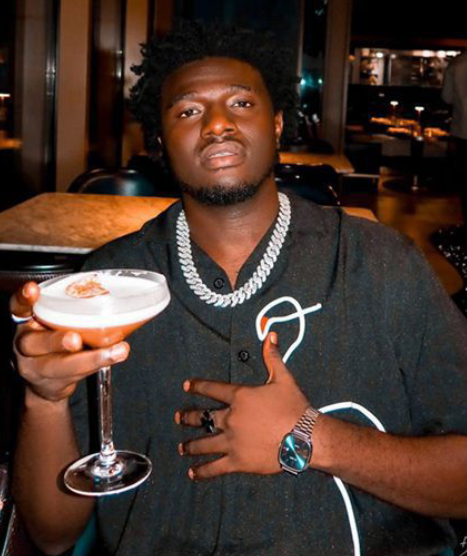
Nasty Blaq Reads Women to Filth After Ruger’s Comment on Female Rivalry Breaks the Internet

The internet is buzzing after content creator and comedian Nasty Blaq stirred the pot with a brutally honest take on female rivalry, following a viral post from singer Ruger. The “Asiwaju” crooner had made a seemingly simple statement — “Girls don’t like each other” — but it was enough to ignite a wildfire of reactions online. Nasty Blaq didn’t just agree; he doubled down, delivering what many have called a “reality check” that sent shockwaves across social media platforms, especially TikTok and X (formerly Twitter).
Ruger’s tweet had come across as a casual observation, but it clearly hit a nerve. Within minutes, social media users began dissecting the statement — some defending women and others admitting that Ruger might be right. It was Nasty Blaq’s response, however, that took the conversation from a spark to a full-blown inferno. “Facts,” he began in his reply, “and if you want proof, go to TikTok and see how women make mockery of other people’s marriage… they compare who has a better wedding, who married the better Odogwu, and whose Odogwu is giving and not giving.”
His words were sharp and unfiltered. He painted a picture of a digital battleground where women — not men — often lead the charge in tearing one another down. According to Nasty Blaq, it’s not men fueling most of the online toxicity; it’s women dragging their fellow women over appearances, relationships, and status. “They mock you if you have a cheap wig, they laugh at your wedding dress if it’s not their standard, and they be quick to say ‘this one is not giving.’ Trust me, men know nothing about what a good frontal or closure looks like. Na from women hand we sabi wetin be bad frontal and closure cos una too dey drag una gender like generator,” he wrote, with a blend of humor and piercing truth that made his post instantly viral.
The comment section under his post exploded with mixed emotions. Some women agreed, admitting that social media has indeed become a place where women are more competitive than supportive. Others, however, accused Nasty Blaq of stereotyping and fueling misogyny. One user wrote, “This is the same narrative men push to divide women — we can disagree without hating each other.” Another fired back saying, “He’s not lying. We don’t support each other enough. Instead of congratulating, we compete.”
The divide in reactions highlighted just how deep this issue runs. On TikTok, users began stitching videos and posting clips of women mocking others’ looks, outfits, or weddings, seemingly backing up Nasty Blaq’s claims. Others countered with clips showing women uplifting one another — sharing opportunities, promoting each other’s businesses, and celebrating small wins. But in typical internet fashion, the debate quickly turned messy, with both genders weighing in.
For many observers, the conversation raised uncomfortable but necessary questions about modern-day female relationships, especially in the age of social media. Nasty Blaq’s take resonated not just because of what he said, but because it came from a place of daily observation. Social media, especially platforms like TikTok, Instagram, and X, are filled with content that subtly pits women against one another — from wedding aesthetics to luxury lifestyles, hair choices, body types, and even parenting styles. What started as harmless comparisons often spirals into public ridicule, jealousy, and cyber-bullying.
One cultural commentator noted that Nasty Blaq’s point, though harshly delivered, reflected a bigger truth about how social validation has replaced genuine connection. In the rush to present the “perfect life,” many women find themselves subconsciously competing with people they don’t even know. It’s no longer enough to have a beautiful wedding; it has to be “better” than someone else’s. It’s not enough to have a loving partner; he has to be richer, taller, or more “giving” than another woman’s man. And when the standards aren’t met, judgment follows — often from those within the same gender.
However, not everyone agreed that Ruger and Nasty Blaq were justified in generalizing. Some female voices on X argued that women’s supposed lack of unity is a narrative often exaggerated by men who fail to acknowledge the everyday sisterhood women build behind the scenes. One user pointed out, “We run entire communities supporting each other, from tech groups to fashion collectives. But of course, the drama always gets more attention than the solidarity.”
Still, the viral moment revealed something powerful — people are tired of pretense. Many applauded Nasty Blaq for saying what others are afraid to. A fan wrote, “He just spoke the hard truth. Social media has turned friendship into competition.” Another said, “Women need to start being more real with themselves. We can’t keep crying ‘women support women’ when half of what we see online is hate disguised as opinion.”
Interestingly, even though the discussion started as gendered commentary, it evolved into a broader conversation about human behavior and envy in the digital age. A few male users chimed in, admitting that men, too, face their share of competition and silent hatred — it’s just less vocal. But they noted that women’s rivalries often trend faster because they play out more openly online.
Nasty Blaq himself did not back down despite the backlash. In a follow-up post, he hinted that he wasn’t attacking women but simply holding up a mirror to reality. “If it doesn’t apply to you, no need to be offended,” he wrote. “But deep down, everyone knows what I’m saying is true.” His unapologetic stance earned him both admiration and criticism, but it also pushed him to the center of one of the week’s hottest online debates.
As usual, social media did what it does best — turn controversy into content. Skit makers, influencers, and talk shows quickly jumped on the trend, dissecting Nasty Blaq’s comments in various ways. Memes flooded timelines. Someone even made a remix of his words, turning “drag una gender like generator” into a catchy song clip now trending on TikTok.
What started as a simple tweet from Ruger has now become a larger commentary on social behavior, authenticity, and competition in the internet era. Whether or not one agrees with Nasty Blaq, his words struck a chord because they touched on something real — the silent rivalry that sometimes thrives beneath the surface of online empowerment.
As the conversation continues to trend, one thing is clear: people are re-evaluating how they interact online, especially within communities that claim to stand for support and sisterhood. Nasty Blaq might have ruffled feathers, but he also opened a necessary dialogue about self-reflection, insecurity, and the pressures of living in a world that constantly compares.
At the end of the day, the truth may be uncomfortable, but as one user aptly put it, “Sometimes it takes a comedian to say what everyone is thinking.” And in this case, Nasty Blaq said it loud enough for the whole internet to hear.


